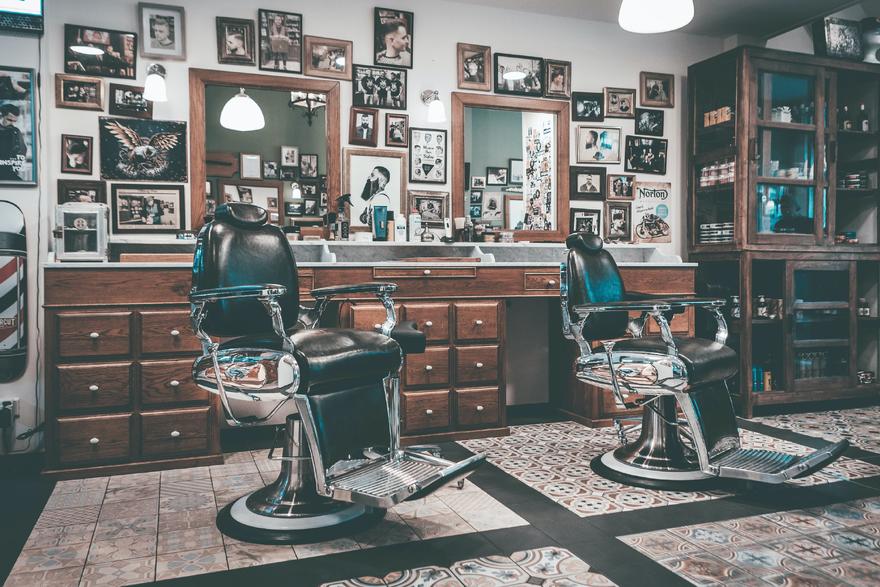Why you can stop panicking about IR35 (but there is something else you do need to clear up!)

IR35 scaremongering got your head spinning? Read on to separate the fact from fiction...

We’ve seen a lot of talk in salon groups about some ‘new legislation’ which comes into play on 6th April 2021 which will ‘shake up’ the chair rental salons.
(*This was supposed to come into play in April 2020 but due to Covid-19, the government postponed it to 2021)
There’s a lot of mixed messages out there so I’ve done a bit of research to help to clear things up…
First of all, what is IR35?
IR35 has recently been called ‘off-payroll working’ by HMRC and only applies if a worker supplies their services via what’s called an ‘intermediary’.
The HMRC website says,
‘The off-payroll working rules:
- apply if a worker provides services to a client through an intermediary, but would be classed as an employee if they were contracted directly
- make sure that workers pay broadly the same tax and National Insurance contributions as an employee
An intermediary will normally be a worker’s personal service company, but could also be a partnership, a managed service company or an individual.’
Why are HMRC cracking down on these arrangements?
If you have a renter who supplies their services via an ‘intermediary’, they will sometimes take advantage of this setup by renting via their own limited company where they will then pay themselves a lower wage which comes under the tax/NI threshold, then benefit from lower tax by taking dividends.
This means, less money for HMRC than if the person was either employed, or contracted as a sole trader. If your renters are sole traders, then they pay the same taxes and NI as an employee would, which is why IR35 only applies to contractors (renters) hired via an ‘intermediary’.
What happens if the rental set up falls under IR35?
At the moment, IR35 only covers medium and large businesses, which means you’d need a turnover of over £10.2 MILLION to come under IR35. If this was ever to change though to include all businesses, this is what would happen:
Okay so let’s say you own a salon, and rent a chair to Jayne Doe Hair Ltd, who then ‘employs’ herself, Jane Doe to do the work. If HMRC pick this up, they use a test called CEST to see whether Jane should be deemed an employee. I cover this in detail in another blog. If Jane is deemed to be an ‘employee’ (eg she can only work in your salon, you set her hours and tell her what she must charge for a haircut), then Jane would be liable for tax and NI as if she’d have been an employee. This is until April 2020, and then it changes…
What happens from April 2021?
From 6th April 2021, the burden will fall to the ‘end user’, which is the salon which hires Jane’s company. However, currently this will only apply to medium and large businesses (over 50 employees, turnover of £10.2 million or more and a balance sheet with over £5.1 million - so it’s safe to say that this doesn’t affect any salons!)
If you have a ‘small’ business (which is safe to say is all salons), the burden still falls to the contractor (renter).
Okay so can I stop panicking now?
IR35 shouldn’t affect any salons, but there is something else which does apply to salons which HMRC are looking closely at.
In our industry it’s very common to have renters (who either pay a fixed rental cost, or they pay a % of their takings or profit to the salon owner).
Some salon owners are guilty of wanting to ‘have their cake and eat it too’ - they want to rent because it means no holiday, sickness or maternity pay, no NI or tax to pay and a generally easier life as the renter runs their own business.
However, they also want to dictate to them how that business should be ran, for example: dictating when they should work, how much they should charge, what to wear, what products to use etc. This is illegal and HMRC can see this as ‘disguised employment’. Again use the CEST tool to check this, or take a look at the blog I mentioned earlier, where I talk about the differences between chair renters and employees.
If you find yourself in the position where HMRC are looking into your business and deem you to be an employer rather than a landlord/lady (i.e. you fail the CEST test), then you will be liable for backdated tax, NI and holiday pay - which could easily total thousands. If HMRC deem that it was a conscious effort to defraud the tax office, you could even be prosecuted.
So what are the lessons here?
- IR35 doesn’t currently affect salons as it only covers businesses with a turnover of over of £10.2 million (we can dream!)
- It also only applies to contractors who work through their limited company.
Instead, you need to scrutinise your set-up with any self-employed workers who rent space from you or pay a % commission.
- You must allow self-employed workers to run their own business under your roof.
- If you’re not happy with that and want more control, you must employ them and then be responsible for their tax, NI, holiday/sick/maternity pay.
Please feel free to share this with anyone who’s unsure around this new legislation or the rules around taking on renters in the salon!
If you'd like to receive FREE business tips and advice, straight to your inbox - join my mailing Facebook support group here:
I’d like to thank everyone who helped me to write this and help dispel the myths which are floating around!
Lorraine Ellison at Simply Additions Ltd
Andrew Barraclough at Salon Frog
Rob Heerin at Rob Heerin HR Ltd

0 comments
Leave a comment
Please log in or register to post a comment